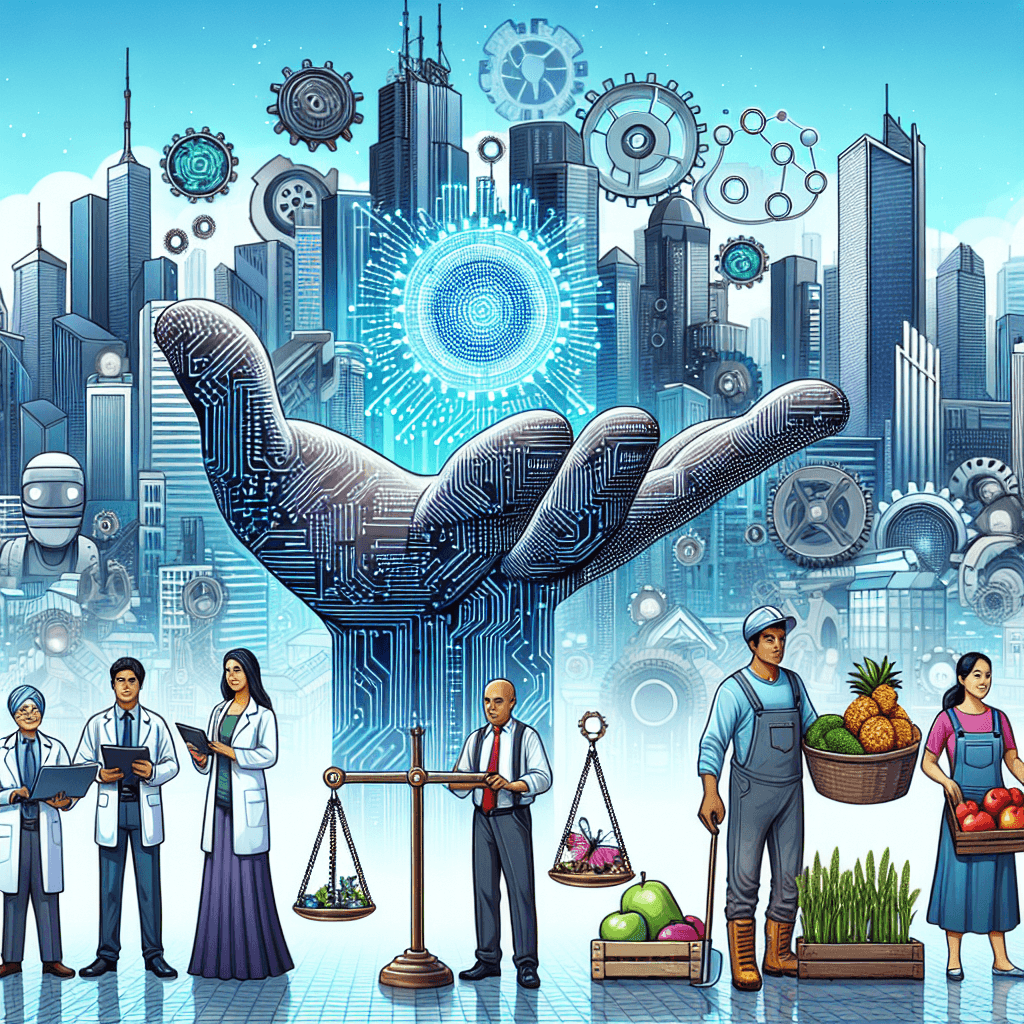AI's Helping Hand: Industry Transformation and the Trade-Offs We Face
The relentless march of technological advancement continues to reshape the world around us, and at the forefront of this transformation is Artificial Intelligence (AI). No longer confined to the realms of science fiction, AI is weaving its way into the fabric of numerous industries, boosting efficiency, refining processes, and redefining the very nature of work.
A Paradigm Shift Across Industries
From healthcare to finance, manufacturing to education, AI's influence is pervasive. In healthcare, AI-powered diagnostic tools assist doctors in making faster, more accurate diagnoses, while personalized treatment plans, powered by machine learning algorithms, are becoming increasingly sophisticated. The financial sector leverages AI for fraud detection, algorithmic trading, and personalized financial advice, leading to more secure and efficient financial ecosystems.
The manufacturing industry is no stranger to AI's transformative power. Robots powered by AI are now commonplace on factory floors, performing repetitive tasks with precision and speed that surpasses human capability. This allows human workers to focus on more complex and creative tasks, fostering a more stimulating and efficient work environment.
Navigating the Crossroads of Progress: The Trade-Offs
While the benefits of AI are undeniable, its implementation is not without its challenges. One of the most pressing concerns revolves around job displacement. As AI systems become increasingly sophisticated, there is a valid concern that they could automate certain job roles, potentially leading to unemployment in specific sectors.
However, history offers a reassuring perspective. Technological advancements have always disrupted the job market, leading to the decline of some professions while simultaneously giving rise to new ones. The Industrial Revolution, for instance, while automating many manual tasks, also created a surge in demand for skilled laborers, engineers, and factory workers.
The key lies in adaptation and upskilling. As AI takes over repetitive and data-heavy tasks, the workforce needs to adapt by acquiring new skills that are in high demand in the age of AI. These include critical thinking, creativity, emotional intelligence, and complex problem-solving skills – areas where humans continue to hold an advantage over machines.
Education: The Cornerstone of a Future-Ready Workforce
This is where education plays a crucial role. Educational institutions and online learning platforms must evolve to equip individuals with the skills and knowledge required to thrive in an AI-driven world. It's not just about understanding the technical aspects of AI, but also about nurturing the uniquely human skills that will be crucial in the future job market.
Ethical Considerations: Navigating Uncharted Territory
The rise of AI also presents ethical considerations that need careful navigation. Data privacy, algorithmic bias, and the responsible use of AI are all critical areas that require ongoing discussion and regulation. Striking a balance between innovation and ethical considerations is paramount to ensuring that AI benefits humanity as a whole.
Embracing the Future, One Algorithm at a Time
The AI revolution is not a distant event; it's unfolding before our eyes. While it presents challenges, it also offers unprecedented opportunities for growth, innovation, and societal progress. The key lies in approaching this transformation with a proactive mindset, focusing on upskilling and education, and engaging in thoughtful dialogue about the ethical implications of AI. By embracing lifelong learning and adapting to the evolving demands of the job market, individuals can position themselves to thrive in an AI-powered future.
Ready to future-proof your skillset and navigate the evolving landscape of work? Explore a wide array of courses and resources on 01TEK, and embark on a journey of continuous learning and growth.
If you think education is expensive, try ignorance
Derek Bok



